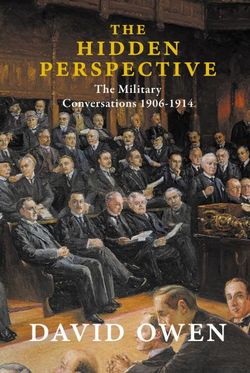Within weeks of taking office in December 1905, British Prime Minister Henry Campbell-Bannerman and his Foreign Minister Edward Grey agreed to allow the General Staff to enter detailed talks with their French counterparts about sending an expeditionary force to France in the event of a German attack. Neither the Cabinet or Parliament were informed. Grey did not even inform Asquith, Campbell-Bannerman's successor as Prime Minister, until 1911, three years after he had assumed office. In the autumn of that year there were two stormy Cabinet meetings during which the details of the military conversations were at last revealed. The following spring Viscount Haldane, the Secretary for War, failed to slow Germany's rapid naval expansion on a mission to Berlin, despite Harcourt, the Colonial Secretary, advocating a land deal for Germany in Africa as an incentive. Recent historical evidence has shown that by July 1914, under pressure to compromise with Germany from Harcourt and Haldane, Grey had relented and a further attempt to negotiate was underway when the war started. All this time there was a hidden perspective of key diplomats alongside Grey Foreign Office.
Together - and in some ways prescient of the build-up to the Iraq conflict in 2003 - they contributed to a feeling that there was a moral commitment to send troops to the continent. The Hidden Perspective shows how the 'mind frame' in the Foreign Office influenced political decision making and sentiment. Lord Owen's conclusion as a former Foreign Secretary, analysing the diplomacy and naval strategy, are that better handled at various stages over those eight years the carnage of the First World War was not inevitable and could even have been prevented altogether.



Share This Book: